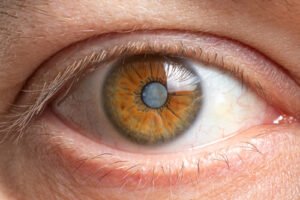Practicing good hygiene can help you avoid eye infections, and reducing your screentime or taking regular breaks can help you avoid eye strain, but can you do anything to prevent cataracts? Cataracts are one of the most common eye conditions.
Since they are often age-related, everyone will get them at some point in life. When you have a cataract, the world becomes less clear, less vibrant, and less enjoyable, and no one wants that.
Keep reading to find out if you can avoid cataracts!
What Are Cataracts?
A cataract is a clouding of the natural lens inside your eye. The lens is usually transparent.

This structure is responsible for focusing light onto the retina so you are able to see clear images. When the lens becomes clouded, light cannot pass through as it should, leading to various visual impairments.
There are several different types of cataracts. Most often, they develop gradually.
Over time, the clouded area becomes bigger, affecting more and more of the lens. The rate of progression varies from person to person.
What Are the Most Common Symptoms of Cataracts?
The most well-known symptom of a cataract is blurry or clouded vision. It may feel as if you are always looking through a foggy window.

Additional symptoms of cataracts include:
- Light sensitivity
- Difficulty seeing at night
- Seeing glare and halos around lights
- Reduced contrast and color vibrancy
- Double vision in one eye
- Frequent prescription changes
As cataracts progress, symptoms worsen. When a cataract is in early development, you may not notice any changes to your vision.
As it grows, however, the passage of light will become increasingly hindered, and symptoms will become more pronounced.
Eventually, everyday tasks become challenging. You may feel nervous driving at night due to decreased night vision, or you may no longer be able to focus on your favorite activities because of frustrating symptoms like double vision.
Because symptoms are usually subtle initially, you may be unaware that you even have a cataract. For this reason, regular exams with your eye doctor are essential.
They will be able to tell you if anything is going on with your vision or your eyes that you may not be aware of.
What Causes Cataracts?
Cataracts can have a few different causes. Most frequently, they are the result of aging.
The majority of cataracts begin to form around the age of forty. Age-related cataracts are also known as nuclear cataracts.

This type of cataract forms gradually in the center, called the nucleus, of the lens. Aging causes cataracts due to the breakdown of proteins in the eye.
As you get older, these naturally degrade and then bond together into masses. These masses are what obstruct your lens.
Another type of cataract is called a cortical cataract. With a cortical cataract, the clouding still forms in the center, but it extends outwards like the spokes of a wheel.
Sometimes these cataracts are still age-related. Other times, they result from diabetes. This is because high blood sugar levels can affect the structure of the lens.
Subcapsular cataracts can also be the result of diabetes. These cataracts develop behind the lens instead of on its front surface. They can also form as a result of extended use of steroid medications.
In addition to these reasons, cataracts can develop because of a birth defect or eye injury.
Can You Prevent Cataracts?
Unfortunately, there is no known way to prevent cataracts. If you live long enough, eventually, everyone will develop one, regardless of age, background, and lifestyle.
With that said, there are some factors that are known to increase your risk of developing a cataract. Risk factors for cataracts include:
- Prolonged exposure to ultraviolet light
- Smoking
- Diabetes
- Lack of nutrition
- High amount of alcohol consumption
- Use of corticosteroids
- Obesity
- Hypertension
By taking measures to stay healthy and reduce the number of risk factors in your life when possible, you can decrease your chances of developing a cataract earlier in life.
How Are Cataracts Treated?
While they are not preventable, the good news is, cataracts are treatable. Cataracts are treated with cataract surgery.

Once a cataract forms, it cannot be reversed, but it can be removed so that you can see clearly again. Cataract surgery is a straightforward outpatient procedure and one of the most frequently-performed procedures around the globe.
It works by removing the lens and replacing it with an artificial one that is clear instead of clouded by a cataract. Mild sedation and numbing eye drops minimize discomfort, and the procedure usually takes less than twenty minutes to complete.
You can go home soon after your surgery, and the recovery period is relatively short. You can expect to get back to most normal activities within a few days.
Cataracts do not always need treatment right away. Your eye doctor will typically only suggest surgery if the cataract has gotten bad enough that it is impacting your quality of life.
Is a cataract bothering you, or is it time for an exam to ensure your eyes are healthy? Schedule an appointment at Cheema MD Eye Care in Kingston, NY, today!



